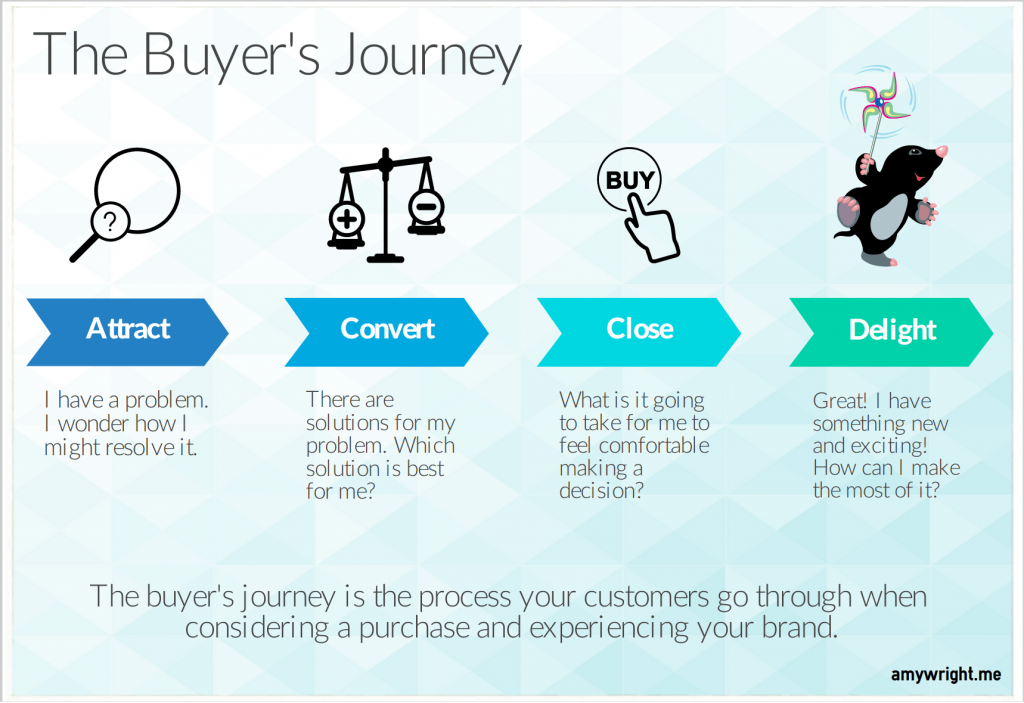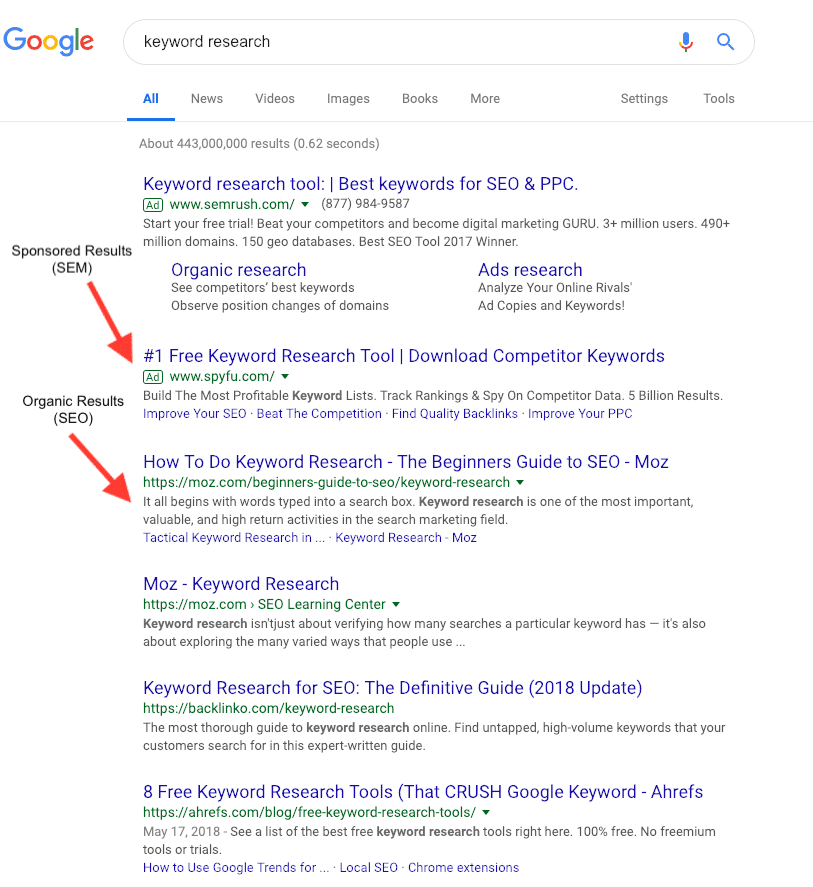
Your website is like a small tree in a massive forest. No one will see it unless you find a way to make it stand out. But which online marketing tactics are right for you? Content marketing sounds sensible (and affordable), but what about SEO? And what the heck’s the difference between content marketing and SEO anyway?
Let’s get clear on that last question before we dive in.
Content marketing and SEO are both part of an inbound approach to marketing, which focuses on building a strong, reputable online presence that can attract a target audience and inspire them to engage with your business. The main difference is that content marketing aims to improve the visibility of your business wherever people are online. While SEO concentrates on improving the visibility of your website in organic search.
But here’s the thing. Content marketing requires a keen
It’s also nearly impossible to win in search unless the content you produce is top notch. This makes quality content a must-have for any SEO effort. And it makes SEO a crucial part of any content marketing strategy and the key to producing satisfying and sustainable content marketing results.
Need more information? Let’s dig in.
What is Content Marketing Again?
Every business creates content to explain what they do, how they do it and who they serve. And they publish much of this content online. Here are a few types of content you might publish to your website or elsewhere online:
- Product or service pages
- Blog posts
- Case studies
- Videos
- Podcasts
- Infographics
- Photos
This list could go on and on.
But there’s more to content marketing than building a website and populating it with information.
“Content marketing (according to the Content Marketing Institute) is a strategic marketing approach focused on creating and distributing valuable, relevant, and consistent content to attract and retain a clearly defined audience – and, ultimately, to drive profitable customer action.”
In other words, content marketing is about getting to know your target audience so you can assess every nuance of your communications from their perspective. This allows you to plan content that’s meaningful and findable. Content that answers important questions at each stage of the buyer’s journey and encourages them to take the next step.

This is why SEO is a huge part of what makes content marketing, marketing. People rely on search engines for finding the information they need. Each query becomes part of a goldmine of data that you can use for insight into the questions your customers ask. With this information, you can create better, more satisfying content. And you can tie it to a strong call-to-action (CTA), which is how you drive “profitable customer action.”
When people are satisfied with your content, they’re more likely to share or link to it. Or, they might explore what you offer and take the next step. For example, they might make a purchase or download a resource in exchange for an email. This behavior sends a positive signal to the search engines and improves the reputation of your website. This, in turn, makes it easier for you to rank in search and creates more visibility for your brand.
Common Content Marketing Skills
The skills of a content marketer may vary from someone focused on SEO.
Content marketers are almost always good writers and researchers. But they may also be proficient in other forms of content creation like photography, graphic design or video. A content marketer will have a general (if not deep) understanding of all possible content distribution channels (including search).
Perhaps most importantly, content marketers know how to learn about and empathize with their customers. This allows them to plan content that will be effective given their product or service, target audience, and competitive landscape.
What is SEO?

Again, just about every business today publishes content online so people can learn about what they do. But that’s not enough to create visibility for your business. You need to publish content your customers will care about and find a way to bring it to their attention.
Since we all use search engines as part of our daily lives, improving the visibility of your website in search is a great way to make that happen. And there are two options for accomplishing this task.
- SEO (search engine optimization) – the practice of driving quality website traffic by working to improve the visibility of your content in organic (unpaid) search.
– and –
- SEM (search engine marketing) – the practice of paying to appear in the sponsored ads at the top of the search engine results. Sometimes referred to as PPC (pay-per-click).
To elaborate, SEO is about building your website’s reputation (in your area of expertise and/or location) so you become a trusted resource that can rank in organic search. It involves tailoring the structure and content of your website (and extended digital presence) to create a positive and fulfilling experience for your visitors and the search engines.
SEM is advertising that essentially works like an auction. You place bids to appear in search for a given set of keywords. If you win, your ad appears at the top of the search results.
SEO and SEM can both be beneficial to your business. SEO is less expensive and more sustainable, but it’s a long-term strategy that takes time, patience and dedication. SEM produces faster results. But it can be expensive, and it only works as long as you’re willing to pay for it.
Search engines make their money from SEM, but to attract advertisers they need a large, loyal audience. This means their top priority is to satisfy the searcher. They need to consistently deliver quality, trustworthy content that answers searcher’s questions and they can’t do it themselves or purely from paid ads. This is the opportunity of SEO. When you win at SEO you earn traffic from search without paying for advertising.
The search results below are sure to look familiar. It’s a massive list of page titles and descriptions that link to content that matches the query. The sponsored results are at the top. Everything below the sponsored results is organic.

The people and organizations who created these resources want searchers to find their content, visit their website, and explore what they offer. And they work hard to make it happen.
Common SEO Skills
SEO is a specialized discipline that requires a very specific skill set.
SEO specialists (referred to as
It’s not always necessary for an SEO to be a writer, but they should recognize a good piece of content when they see it and be able to spot opportunities to make it better. They know their way around website building platforms (like WordPress) and are comfortable making changes and optimizing content with metadata.
Similar to their content marketing counterparts, SEOs have strong research and analytical skills which they use to perform
An Integrated Approach to Content Marketing and SEO is the Secret Sauce

You could craft content for your website based on what you feel like creating or what you think your audience wants. And you might promote this content by sharing it on social media and sending it to your email list. Technically, this is a form of content marketing.
However, creating content is a significant investment. And all you’re doing in the scenario above is validating your business to those who already know you exist. You’re also ignoring a terrific resource of insight into your customers and the opportunity to earn free traffic (and sales) from
Content marketing done right is goal oriented. It involves planning, building, and disseminating content designed to attract a specific target audience and inspire them to engage with your business. SEO is integral to this process.
SEO ignites content marketing by improving the visibility of your website in organic search. While content marketing aims to create visibility for your content wherever people are online. But it’s the infusion of content marketing and SEO that transforms “wherever” to be everywhere your business needs to be online!


